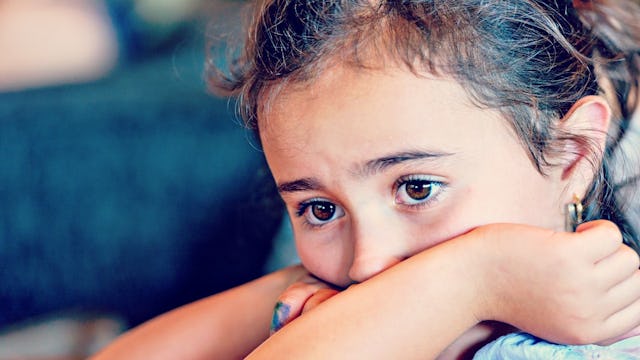We're Failing Our Kids When It Comes To Mental Health Education

“It’s a mental health problem!” half the population cries every time our country is reeling from yet another school shooting, but their proposed solution is always to arm the teachers, slapping a Band-Aid on a gaping wound. If it’s truly about mental health, then more should be done about mental health. And it should start with the proper education of our children, because the earlier we start teaching them the basics, the more time we have for it to stick.
We need to create a conversation with our kids about mental health, now, when they’re young – and we need to keep talking. It’s critically important to their well-being, as much as eating a nutritious diet or getting regular exercise, and yet – though we’re constantly bombarded with reminders to keep physically fit – it’s much quieter out there when it comes to talking about the condition of our minds and emotions.
We aren’t encouraged to get checkups with a mental health professional in the same way we’re encouraged to make that yearly visit to other types of doctors, safeguarding the fitness of everything from vaginas to teeth, even though our mental state can literally affect the physical. How are kids supposed to know the best way to deal with their emotions if we ignore them, and if we continue to treat psychological services like they’re strictly for “broken” people?
I think back to how inadequately my own health classes addressed the basics of taking care of ourselves mentally and emotionally. Much time was devoted to puberty and weight control and personal hygiene, but mental health was condensed into maaaybe a weeklong unit, barely a blip on the radar. Granted, I was in school a hundred years ago – in fact, my last health class was in the seventh grade; the fact that health education didn’t even begin in earnest until I was nearly a teenager speaks volumes.
But I presently have school-aged kids, and have rifled through many a sheaf of handouts from backpacks, and though I’ve come across countless flyers on the food guide pyramid and the importance of being “heart-smart,” I can’t recall ever seeing any literature regarding what to do if you’re feeling anxious or lonely or depressed. Or how to handle bitter disappointment or burning rage or the sting of jealousy. You know, things we all feel at some point or another.
Yes, there are Psychology classes, but those don’t begin until high school – and they’re usually not mandatory, so not everyone takes them (they weren’t even offered at my small high school when I attended). It wasn’t until college, where I majored in Psychology, that I started to learn more about the mental health issues that can affect anybody at any time. But even then, it seemed that my classes were mostly focused on disorders that not everyone will experience, like schizophrenia and bipolar, with coping strategies for everyday stressors thrown in as an aside.
Wouldn’t it behoove our children – and, consequently, our society – to make their mental health a priority from the start? Especially since today’s kids are dealing with some tough stuff. They’ve got the potential to be bullied both in person and online, they can no longer feel completely safe in their own schools, and teen suicide rates are on the rise (among girls, it recently hit a 40-year high).
The pendulum is swinging in the right direction, with the vast inclusion of anti-bullying messages in schools, but it seems to be a slow swing. We need to do more. We need to introduce mental health as a topic that holds just as much weight as, well, weight. We need to recognize and normalize the importance of both self and professional mental healthcare, helping kids to be comfortable talking about their feelings. We need to devote entire classes, not just temporary lessons, to teaching them how to cope with the heavy emotions that they will inevitably encounter – and how and where to get help if they can’t.
If this country is facing a mental health crisis, it’s imperative that we stop the proverbial bleeding with more than just a Band-Aid. We need to equip teachers not with guns, but with the tools to spot the lonely, bullied, socially and emotionally at-risk kids. And we need to equip those kids – all kids – to handle the big feelings that threaten to overwhelm them, and to show empathy to those who are suffering.
By starting now, and starting early, we can chip away at the stigma that has helped create this crisis in the first place.